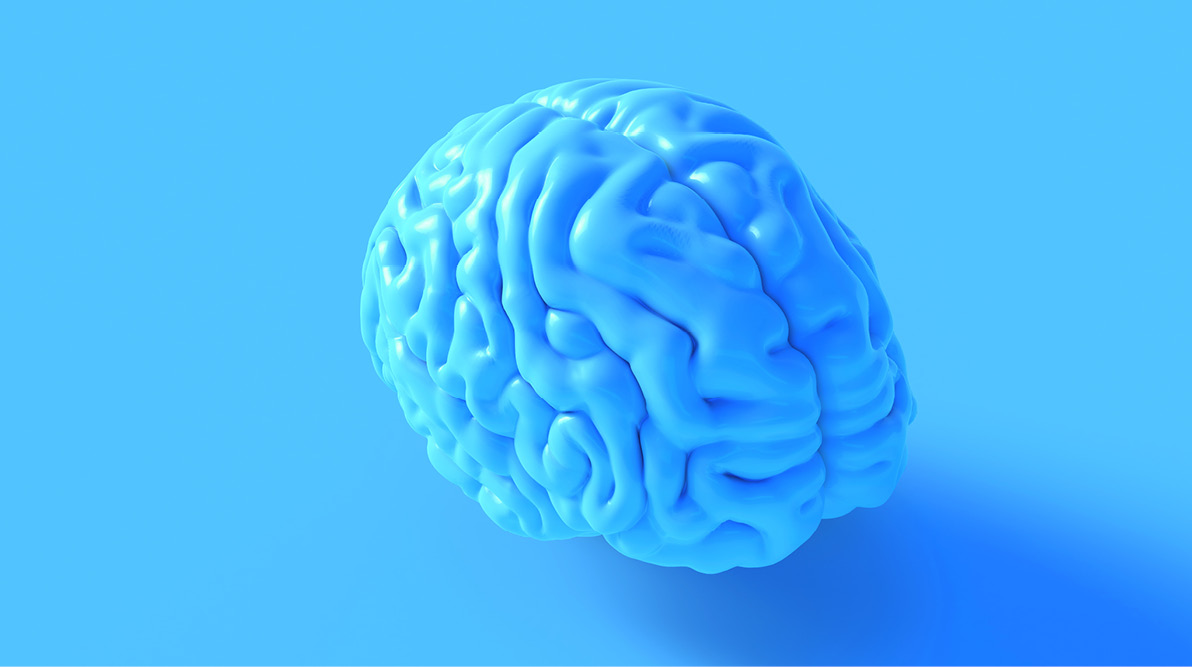Moving More Benefits Your Body & Mind
The human body is truly a marvel of engineering. The elegant, complex mechanisms that make us who we are adapt continually to ensure survival. We have the ability to dream about wondrous creations and the desire to go out and make those dreams come true.
When we put our efforts into something, our bodies and brains adapt. We get better and improve with practice, and our physical bodies become fine-tuned machines, guided by minds that are agile and innovative.
Chasing your food was a lot of work
In today's bustling business environment, it can be difficult to keep our physical bodies in peak condition. We don't have to hunt for our food in a difficult outdoor setting; we merely stroll into a grocery store. Food no longer requires long, exhausting hunts fraught with peril.
Most of us do not face physical dangers that require being able to run quickly. Instead, we are adapting to sitting in chairs, lounging on the couch, playing video games or electronic devices, and sipping cocktails.
Moving more is the secret answer to what ails many of us. Our bodies are amazingly complex and unique machines that are dependent on movement to maintain healthy function, not only physically, but mentally.
How can you increase your movement, and in turn, your health?
Try these 3 tips to improve your body's functionality:
1. Get up. Don't sit down for too long
A recent study followed people during a 5-year period. The ones who had the greatest success with weight loss were compliant with the guideline to walk at least 10,000 steps per day.
Walking is the best possible exercise. Habituate yourself to walk very far.
Thomas Jefferson
Even if you can't go for a walk, stand up and sit down at your desk. Take the stairs when you walk into the office. If you take public transportation, get off a stop or two early and walk. If you drive, park at the very back of the parking lot or garage.
2. Find something you like
You may start out enthusiastic and gung-ho and ready to run every morning. But then you realize, on the fifth day that you hate running. You despise it. What is the likelihood that you will keep it up?
It's much better to find an activity that you enjoy. Swimming, hiking, roller skating, dancing, yoga, playing a sport, or even playing on a playground are all good for you. You don't need to become a triathlete to have a healthy body, but moving more might just inspire you to want to do more.
If your body isn't a good enough reason to move, think about your brain then. Consider this study that discusses physical and cognitive training, specifically tailored to gait in the elderly. Subjects were asked to complete tasks as they walked, and this dual-task training counteracted the age-related decline that inhibits daily living.
3. Put aside the electronics
Yes, it's ironic, because you are likely reading this article on a computer, tablet, or phone. Instead of loafing on the couch, staring at the TV or a video game, move around instead. Go outside and feel the sunlight. Look at the birds and play catch with your children. Leave your phone or tablet behind and let your mind unclutter from the distractions of electronics.
Citations:
- Smith, K. J., Gall, S. L., McNaughton, S. A., Cleland, V. J., Otahal, P., Dwyer, T., & Venn, A. J. (2017) Lifestyle behaviours associated with 5-year weight gain in a prospective cohort of Australian adults aged 26-36 years at baseline. BMC Public Health, 17, 54. http://doi.org/10.1186/s12889-016-3931-y
- Falbo, S., Condello, G., Capranica, L., Forte, R., & Pesce, C. (2016) Effects of Physical-Cognitive Dual Task Training on Executive Function and Gait Performance in Older Adults: A Randomized Controlled Trial. BioMed Research International, 2016, 5812092. http://doi.org/10.1155/2016/5812092
- i4 Neuroleader (353)
- Leadership & Culture (336)
- Brain Health & Wellbeing (206)
- Innovation (97)
- Performance (85)
- Our News (79)
- Collaboration (68)
- Agility (53)
- Practitioner Stories (44)
- In The Press (36)
- Make Me A Leader (33)
- Balance (31)
- Integration (30)
- Imagination (29)
- Awareness (23)
- Brain-Friendly Channel (22)
- Brain-Friendly Leadership (22)
- Communication (22)
- Curiosity (21)
- Inspiration (19)
- Intuition (19)
- Attitude (17)
- Courage (16)
- Adaptability (14)
- Case Studies (14)
- Drive (14)
- Generosity (13)
- Ethics (9)
- Mental Readiness (9)
- Influence (8)
- Retreat (8)
- Brain-Friendly Leadership (1)
- Oracle Cards (1)
- 1 November 2025 (2)
- 1 September 2025 (3)
- 1 August 2025 (5)
- 1 July 2025 (5)
- 1 June 2025 (2)
- 1 April 2025 (1)
- 1 March 2025 (8)
- 1 February 2025 (3)
- 1 September 2024 (4)
- 1 July 2024 (2)
- 1 June 2024 (6)
- 1 May 2024 (2)
- 1 April 2024 (3)
- 1 March 2024 (1)
- 1 November 2023 (1)
- 1 August 2023 (1)
- 1 July 2023 (2)
- 1 June 2023 (2)
- 1 May 2023 (4)
- 1 April 2023 (2)
- 1 March 2023 (7)
- 1 February 2023 (4)
- 1 January 2023 (1)
- 1 September 2022 (1)
- 1 May 2022 (3)
- 1 April 2022 (1)
- 1 March 2022 (5)
- 1 February 2022 (4)
- 1 January 2022 (4)
- 1 December 2021 (2)
- 1 November 2021 (4)
- 1 October 2021 (3)
- 1 September 2021 (6)
- 1 August 2021 (1)
- 1 April 2021 (1)
- 1 December 2020 (2)
- 1 November 2020 (1)
- 1 September 2020 (1)
- 1 August 2020 (1)
- 1 July 2020 (3)
- 1 June 2020 (4)
- 1 May 2020 (3)
- 1 April 2020 (4)
- 1 March 2020 (6)
- 1 February 2020 (4)
- 1 January 2020 (2)
- 1 December 2019 (3)
- 1 November 2019 (3)
- 1 October 2019 (5)
- 1 September 2019 (4)
- 1 August 2019 (4)
- 1 July 2019 (4)
- 1 June 2019 (5)
- 1 May 2019 (9)
- 1 April 2019 (9)
- 1 March 2019 (8)
- 1 February 2019 (7)
- 1 January 2019 (8)
- 1 December 2018 (5)
- 1 November 2018 (10)
- 1 October 2018 (16)
- 1 September 2018 (9)
- 1 August 2018 (10)
- 1 July 2018 (9)
- 1 June 2018 (8)
- 1 May 2018 (9)
- 1 April 2018 (9)
- 1 March 2018 (9)
- 1 February 2018 (8)
- 1 January 2018 (8)
- 1 December 2017 (6)
- 1 November 2017 (9)
- 1 October 2017 (9)
- 1 September 2017 (8)
- 1 August 2017 (10)
- 1 July 2017 (8)
- 1 June 2017 (8)
- 1 May 2017 (9)
- 1 April 2017 (8)
- 1 March 2017 (6)
- 1 January 2017 (3)
- 1 December 2016 (4)
- 1 November 2016 (5)
- 1 October 2016 (4)
- 1 September 2016 (2)
- 1 August 2016 (4)
- 1 July 2016 (4)
- 1 June 2016 (2)
- 1 May 2016 (3)
- 1 April 2016 (3)
- 1 March 2016 (7)
- 1 February 2016 (2)
- 1 January 2016 (5)
- 1 December 2015 (2)
- 1 November 2015 (2)
- 1 October 2015 (4)
- 1 September 2015 (2)
- 1 August 2015 (2)
- 1 July 2015 (1)
- 1 June 2015 (3)
- 1 May 2015 (4)
- 1 April 2015 (5)
- 1 March 2015 (3)
- 1 February 2015 (3)
- 1 January 2015 (3)
- 1 December 2014 (3)
- 1 November 2014 (3)
- 1 October 2014 (3)
- 1 September 2014 (5)
- 1 August 2014 (4)
- 1 July 2014 (5)
- 1 June 2014 (3)
- 1 May 2014 (1)
- 1 March 2014 (1)
- 1 December 2013 (2)
- 1 November 2013 (1)
- 1 July 2013 (1)
- 1 June 2013 (1)
- 1 May 2013 (3)
- 1 April 2013 (1)
- 1 March 2013 (2)
- 1 February 2013 (1)
- 1 January 2013 (2)
- 1 November 2012 (1)
- 1 October 2012 (1)
- 1 September 2012 (1)
- 1 August 2012 (2)
- 1 July 2012 (1)
- 1 June 2012 (1)
- 1 May 2012 (2)
- 1 April 2012 (1)
- 1 February 2012 (1)
- 1 January 2012 (1)
- 1 November 2011 (1)
- 1 October 2011 (3)
- 1 September 2011 (2)
- 1 July 2011 (1)
- 1 June 2011 (1)
- 1 May 2011 (1)
- 1 April 2011 (1)
- 1 March 2011 (1)
- 1 February 2011 (2)
- 1 January 2011 (4)
- 1 December 2010 (4)
- 1 November 2010 (3)
- 1 October 2010 (5)
- 1 September 2010 (4)
- 1 August 2010 (4)
- 1 July 2010 (3)
- 1 June 2010 (4)
- 1 May 2010 (7)
- 1 April 2010 (5)
Subscribe by email
You May Also Like
These Related Stories

What Happens When the Brain is Too Tired to Perform?

Respect Is A Cornerstone Of Leadership



No Comments Yet
Let us know what you think